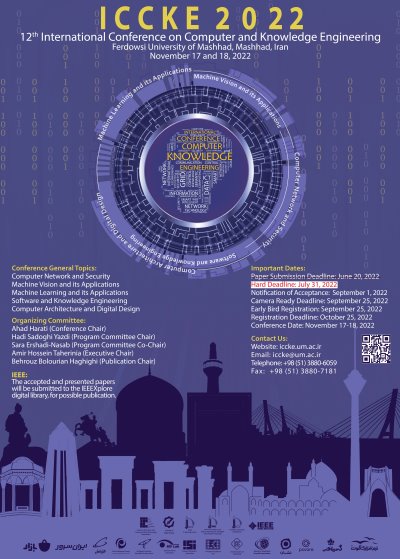0% Complete

Authors :
Keywords :
Abstract :
List of archived papers
Elham Mahmoudabadi - Esmaeil Mollaahmadi
Maria Salehpanah - Jafar Tanha - Zahra Jafari - SeyedEhsan Roshan - Sajad Rezaei
Mohammad Aminazadeh - Fakhroddin Noorbehbahani
Sahar Ahsani - Morteza Yousef Sanati - Muharram Mansoorizadeh
Shima Esfandiari - Ashkan Sami
Abolfazl Mohajeri Khorasani - Sahar Ghassabi - Behshid Behkamal - Mostafa Milani
Alireza Rabiee - Abolfazl Ajdarloo - Mohsen Rahmani
Ahmadreza Montazerolghaem - Maryam Khosravi - Fatemeh Rezaee
Mahdi Dehghani - Samira Vaez Barenji - Saeed Farzi
Zerek Sediq Hossein - Rojiar Pir Mohammadiani - Saadat Izadi




